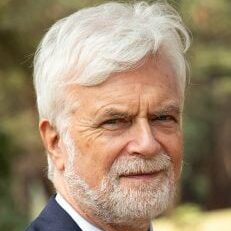Newsletter 14 Aug 2023
Environment: What’s Up in GENeva | 14 – 20 August 2023

The Geneva Environment Network’s weekly newsletter includes the latest information on the global environmental agenda, main events, job vacancies, learning opportunities, as well as other useful resources and updates. Stay tuned and follow us also on Twitter, Facebook, LinkedIn, and Youtube, or visit our website regularly for additional updates.
Image of the week | Natural Bee Sculpture introduced by the City of Geneva gardeners in Parc La Grange in 2022. Throughout its history, the City has benefited from generous donations totaling almost 310 hectares of parkland, making it the “City of Parks”. Parks and gardens account for about 20% of the municipal territory. Various international and local organizations in Geneva are engaged in the protection and conservation of our biological diversity, including pollinators. → Find out more in our World Bee Day update
Highest Global Average Temperatures on Record
It was confirmed early this month that the global average temperatures for July 2023 were the highest on record for any month:
- The month was 0.72°C warmer than the 1991-2020 average for July, and 0.33°C warmer than the previous warmest month, July 2019.
- Heatwaves were experienced in multiple regions of the Northern Hemisphere, including southern Europe. Well-above-average temperatures occurred over several South American countries and around much of Antarctica.
- Global average sea surface temperatures also reached record-high levels in July, after being on a continued rise since April 2023. These have marine heatwaves in the south of Greenland and in the Labrador Sea, in the Caribbean basin, and across the Mediterranean Sea.
These records are in line with the trend of past years, as 2015-2022 were the warmest years on record according to the WMO 2022 State of Global Climate Report. Across the world, summer months have been characterized by weather extreme events, such as above-average precipitation in some regions and above-average dryness in others. The Sixth Assessment Report (AR6) Synthesis Report: Climate Change 2023 finalized by the Intergovernmental Panel on Climate Change (IPCC) in March 2023, finds that observed changes in weather extremes such as heatwaves, heavy precipitation, droughts, and tropical cyclones, can be attributed to human influence with greater confidence since the previous Assessment Report (AR5) of 2014, with a high confidence interval that human activity, particularly Green House Gas Emissions, is the main driver of increases in hot extremes and decreases in cold extremes.
IPCC Elections Mark Start of 7th Assessment Cycle
The Intergovernmental Panel on Climate Change completed its elections at its 59th Session in Nairobi last July, marking the end of the IPCC’s sixth assessment cycle and the beginning of the seventh assessment. Governments elected the new IPCC Bureau comprising 34 members, including the new IPCC Chair and three Vice-Chairs. The Panel also elected the 12 members of the Task Force Bureau on National Greenhouse Gas Inventories (TFI). → Full list of elected bureau members
Jim Skea of the United Kingdom is the newly elected Chair. With nearly forty years of climate science experience and expertise, he will lead the IPCC through its seventh assessment cycle.
Addressing Geoengineering from A Human Rights Perspective
Climate-altering technologies and measures (CATM), also known as geoengineering, are often mentioned in discussions related to tackling climate change. However, the impact, scalability, and long-term effects of these raise concerns. For instance, UNEP’s independent expert review on solar radiation management (SRM) research and deployment issued earlier this year (One Atmosphere: UNEP, 2023) has highlighted new risks caused by its deployment at scale, including damages to the ozone layer and increase or redistribution of climate change impacts on society and ecosystems.
The Human Rights Council Advisory Committee published early August the first report on the human rights implication of geoengineering, highlighting how these technologies could impair various human rights, including the right to a clean, healthy and sustainable environment. Geoengineering deployment is considered to pose greater risks for frontline communities, including Indigenous Peoples, peasants, fisherfolks, local communities, women, and people working in rural areas. The Center for International Law’s (CIEL) comment on the report stresses that the precautionary approach and States’ obligations to protect, respect, and fulfill human rights entail a duty not to deploy or develop geoengineering technologies, given the associated high risks and uncertainties for the rights of present and future generations.
It is also to be noted that the United Nations Secretary-General António Guterres announced in early August the creation of a new Scientific Advisory Board for Independent Advice on Breakthroughs in Science and Technology. The primary objective of the Board is to provide independent insights on trends at the intersection of science, technology, ethics, governance, and sustainable development. Through their collaborative efforts, the Board and its Network will support UN leaders in anticipating, adapting to, and leveraging the latest scientific advancements in their work for people, planet, and prosperity.
Riding the Wave of the UN 2023 Water Conference
The UN 2023 Water Conference, held last March in New York, marked a historic revival of cooperation and partnership around water, being the first conference of this kind since 1977. With outcomes including the adoption of the Water Action Agenda, more countries joining the Water Convention, and the launch of the 2023 United Nations World Water Development Report on Partnerships and Cooperation. Many processes around the world are building on these, and include this week:
- 38th UN-Water Meeting | Taking place on 18–19 August 2023 in Stockholm, Sweden. Delegates will discuss progress under the SDG 6 Global Acceleration Framework, a follow-up to the UN 2023 Water Conference, progress updates on the United Nations World Water Development Report 2024, and proposals for new expert groups on global campaigns and groundwater. → Follow the ENB live coverage
- World Water Week 2023 | The annual World Water Week will take place from 20 to 24 August 2023 in Stockholm, Sweden and online. The 2023 edition is focused on innovation at a time of unprecedented challenges. The theme Seeds of Change: Innovative Solutions for a Water-Wise World invites us to rethink how we manage water and investigates which ideas, innovations, and governance systems will we need in a more unstable and water-scarce world.
It is also to be noted that a Briefing Ahead of the 10th World Water Forum Stakeholder Consultation, taking place in Bali, Indonesia later this year, is being planned in Geneva by the Permanent Mission of Indonesia and the Geneva Environment Network. The event will provide updates on the outcomes of the UN Water Conference and stakeholders’ perspectives on the way forward to the Forum and will involve numerous institutions of international Geneva. → Learn more and register to attend in person on 30 August 2023 from 11:00 to 12:30 CEST
Growing Opposition to Deep-Sea Mining
The future of deep-sea mining was at the center of the discussions in July in Kingston, Jamaica, where Member States and stakeholders attended the 2nd part of its 28th Annual Session of the International Seabed Authority (ISA). Despite being presented as essential to the green transition and an opportunity for economic development, a growing number of voices are speaking out against the associated and often unknown impacts those activities have on the abyss’s biodiversity and carbon sequestration. Numerous stakeholders are thus requesting a moratorium on deep seabed mining (DSM) to protect life in the ocean.
Following 11 Council and 4 Assembly days of confrontational debates and difficult negotiations, key moments and decisions of the Council included:
- Establishment of the position of an interim director general of the Enterprise.
- With regard to the timeline following the expiration of the two-year period (in relation to section 1, paragraph 15), the Council expressed its intention to continue the elaboration of RRPs with a view to their adoption during the 30th ISA session in 2025, with Council meetings to be convened in November 2023 as well as in March and July 2024.
- If the exploitation RRPs are not completed by the end of the July 2024 meeting, the Council will assess the remaining work and consider another roadmap to that end.
- The Council reiterated its request to the Secretary-General to inform Council members within three business days of the receipt of an application for a plan of work for exploitation in the absence of exploitation rules, regulations, and procedures (RRPs)
- If an application for a plan of work for exploitation is submitted before the adoption of the exploitation RRPs, the Council will address the understanding and application of the two-year rule as a matter of priority with a view to reaching a decision at its first subsequent meeting.
- Member States at the General Assembly were unable to put on the agenda the opening of a debate on the very principle of exploiting the ocean floor, as called for by France, Chile, and Costa Rica, as well as the archipelagos of Vanuatu and Palau. The objective of holding a debate remains to obtain a position from the ISA in favor of a moratorium by the time of the next United Nations Ocean Conference, jointly organized by France and Costa Rica in Nice in June 2025.
- Inclusion of an item on “the Authority’s general policy on the protection and preservation of the marine environment” on the provisional agenda for 2024.
- More than 30 mining industry representatives were part of the official state delegations.
- 21 states have taken positions against deep-sea mining in international waters.
Additional resources and useful analyses include:
- ISA Assembly concludes twenty-eighth session with participation of heads of States and governments and high-level representatives and adoption of decisions on the establishment of the Interim Director General of the Enterprise | International Seabed Authority | 2 August 2023
- Obstacles Remain to Developing Robust, Comprehensive Deep Sea Mining Rules | IISD SDG Knowlege Lab | 2 August 2023
- No green light for mining the deep sea | WWF | 29 July 2023
- Metals bosses enjoy front row seat at UN deep-sea mining negotiations | Climate Home News | 8 August 2023
- Climate-altered’ Pacific could see conflict between tuna fishing and deep-sea mining | CarbonBrief | 28 July 2023
- WWF expert on deep-sea mining talks: expect more state support for moratorium | Geneva Solutions | 27 July 2023
Avoiding the Point of No Return in the Amazon
Leaders from eight South American nations — Bolivia, Brazil, Colombia, Ecuador, Guyana, Peru, Suriname, and Venezuela — members of the Amazon Cooperation Treaty Organization (ACTO), convened in Belém do Pará, Brazil, for the two-day Amazon Summit that concluded on 9 August 2023. They addressed the pressing issues facing the Amazon rainforest and issued the Belém Declaration. The document refers to various UN bodies and proposes steps to address deforestation and highlights the global ecological importance of the Amazon. Highlights of the declaration include:
- Recognition of indigenous knowledge’s role in biodiversity conservation and restoration; commitment to uphold Indigenous Peoples’ decision-making rights.
- Promotion of sustainable forest use and economic strategies addressing Amazon’s deforestation and degradation concerns.
- Formation of an Amazon Alliance against Deforestation to promote regional cooperation in the fight against deforestation.
- Commitment to combat illegal natural resources extraction activities, including mineral exploitation and deforestation, highlighting the dangers of mercury pollution from illegal mining.
- Acknowledgment of the importance of negotiating an instrument to end plastic pollution and promote sustainable production of plastics and the strengthening of safe waste management.
- Intention to establish an Amazon-centered scientific panel.
However, civil society organizations such as WWF and CIEL highlighted its shortcomings:
- The Declaration pledges to combat deforestation but falls short of dismantling its root causes, such as oil and gas projects, industrial agriculture, and harmful extractive industries, and does not include substantive conservation measures nor mention the 2030 target deadline.
- From a human rights perspective, the Declaration fails to link its transparency process to already existing instruments such as the Escazú Agreement and lacks emphasis on the role of Indigenous Peoples in Amazonian decision-making processes.
Right to a Healthy Environment Global Coalition Wins UN Human Rights Prize
The Global Coalition of Civil Society, Indigenous Peoples, Social Movements, and Local Communities for the Universal Recognition of the Human Right to a Clean, Healthy, and Sustainable Environment was recognized as one of the recipients of the 2023 United Nations Human Rights Prize. The Coalition is awarded for its essential role in advocating for the recognition of the right to a healthy environment by the UN General Assembly on 28 July 2022. The award ceremony will take place at UN Headquarters in New York in December.
The Coalition is a diverse and global coalition of over 1,350 civil society organizations, Indigenous Peoples, social movements, and local communities from 75 countries across the world, united in the call to the UN and its Member States to recognize and uphold the right to a clean, healthy and sustainable environment.
Established by the UN General Assembly in 1966, the Human Rights Prize is awarded every five years. This year’s award comes at a special moment as we commemorate the 75th anniversary of the Universal Declaration of Human Rights and reconnect to its values.
Appointment of New UNECE Executive Secretary
The United Nations Secretary-General announced the appointment of Tatiana Molcean of Moldova as the next Executive Secretary of the United Nations Economic Commission for Europe (UNECE), who will succeed Olga Algayerova of Slovakia, whose term in office will conclude at the end of August. Tatiana Molcean is currently the Permanent Representative of the Republic of Moldova to the United Nations Office, World Trade Organization and other international organizations in Geneva. As such, she has played an active role in UNECE’s work over recent years. → UNECE press release
Geneva Environment Network Upcoming Events
As the first two months of the summer have passed, the environment agenda in International Geneva begins picking up speed. Upcoming briefings organized or co-organized by the Geneva Environment Network include:
- Briefing on the Global Intergovernmental Meeting on Minerals and Metals | Pursuing UNEA-5 resolution on the Environmental aspects of minerals and metals management (UNEP/EA.5/Res.12), a Global Intergovernmental Meeting on Minerals and Metals will take place on 7 and 8 September 2023 in Geneva, back-to-back with the 2023 edition of the World Resources Forum. This event, organized with the co-chairs of the process Pakistan and Switzerland, is taking place two weeks ahead of the intergovernmental meeting, and will provide updates on preparations and the way forward. → Register to attend in person or online on 23 August 2023 from 11:00 to 12:30 CEST.
- Briefing on the 5th session of the International Conference on Chemicals Management (ICCM5) | The 5th session of the International Conference on Chemicals Management (ICCM5), organized by UNEP under the presidency of the government of Germany, will take place from 25 to 29 September 2023 in Bonn, Germany. ICCM undertakes periodic reviews of the Strategic Approach to International Chemicals Management (SAICM), a global multi-sectoral and multi-stakeholder policy framework on the sound management of chemicals across the lifecycle. This briefing, organized by the SAICM Secretariat and the Geneva Environment Network one month ahead of the intergovernmental meeting, will provide updates on preparations and the way forward. → Register and join us in person or online on Thursday 24 August 2023 from 11:00 to 12:30 CEST.
- Briefing Ahead of the 10th World Water Forum Stakeholder Consultation | Ahead of the 2nd Stakeholder Consultation meeting on the 10th World Water Forum (2024), taking place in Bali, Indonesia on 12 to 13 October 2023, the Permanent Mission of Indonesia to the UN in Geneva and the Geneva Environment Network are hosting a briefing. The event will provide updates on the outcomes of the UN Water Conference and stakeholders’ perspectives on the way forward to the Forum. It will also address the water-related outcomes of the UN Climate Change Conference. → Learn more and attend on 30 August 2023 from 11:00 to 12:30 CEST
What (Else) to Read Next?
- Yemen: UN concludes removal of one million barrels of oil from decaying tanker | UN News | 11 August 2023
A UN-led operation to remove over one million barrels of crude oil from a rusting supertanker off Yemen safely concluded on Friday, preventing the immediate threat of a massive spill in the Red Sea. - South Africa must tackle crude legacy of environmental racism and toxic exposure: UN expert | UN Human Rights Special Procedures, 11 August 2023
“To this day, the legacy of pervasive air, water and chemical pollution disproportionately impacts marginalised and poor communities,” said Marcos Orellana, the UN Special Rapporteur on toxics and human rights in a statement issued at the end of his official visit to South Africa.
- Trade Thoughts, from Geneva | WTO DDG Anabel González | 3 August 2023
Among the various thoughts on the multilateral trading system, WTO DDG Anabel González writes that dealing with diverging approaches to trade measures aimed at combating climate change is also key. - Toward a Nature Positive Future: Interview with WWF Special Envoy Marco Lambertini | China Council for International Cooperation on Environment and Development | 1 August 2023
In this in-depth interview, Marco Lambertini, Director General of WWF International between 2014 and 2022 and a CCICED Council Member, discusses the historic adoption of the Kunming-Montreal Global Biodiversity Framework (GBF) at the Convention on Biological Diversity (CBD) Conference of the Parties 15 (COP15) in December 2022. - Indonesia Cracks Down on the Scourge of Imported Plastic Waste | YaleEnvironment360 | 1 August 2023
Faced with an unending stream of unrecyclable waste, Indonesia has tightened its regulations and has begun to make progress in stemming the plastics flow. - Global Climate Litigation Report: 2023 Status Review | UNEP | 27 July 2023
This report shows that people are increasingly turning to the courts to combat the climate crisis. As of December 2022, there have been 2,180 climate-related cases filed in 65 jurisdictions, including international and regional courts, tribunals, quasi-judicial bodies, or other adjudicatory bodies, such as Special Procedures at the United Nations and arbitration tribunals. - B-ACT: Business Agroecology Criteria Tool | Biovision | 26 July 2023
The Business Agroecology Criteria Tool (B-ACT) is a tool to assess and identify inspiring and promising agroecological enterprises that contribute to sustainable food systems. The extent to which an enterprise ‘inspires’ is reflected in its alignment with the 13 agroecology principles (HLPE, 2019) while the aspect ‘promising’ is reflected in its business model, value-generating activities and scalability. - IISD Trade and Sustainability Review (Volume 3, Issue 3) | IISD | 17 July 2023
This issue of the IISD Trade and Sustainability Review delves into various trade topics, including the progress of Africa’s garment industry in achieving circular economy goals, the role of trade in tackling the biodiversity crisis, and the present status of the WTO’s dispute settlement system.
Events
See all
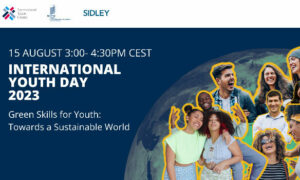
Virtual
International Youth Day 2023 | Green Skills for Youth: Towards a Sustainable World
15 Aug 2023 15:00 – 16:30
Online | Zoom
ITC, WIPO

Local
Eveil du Léman, à la découverte de la biodiversité
17 Aug 2023 06:00 – 08:00
Plage des Eaux-Vives
ASL

Afterwork
Afterwork “Botanical missions” | Searching
17 Aug 2023 18:00
Botanical Conservatory and Garden
Botanical Conservatory and Garden of Geneva

Afterwork
Festi’Terroir 2023
18 – 20 Aug 2023
Parc des Bastions
Genève Terroir, BioGenève, City of Geneva

Jobs
See all
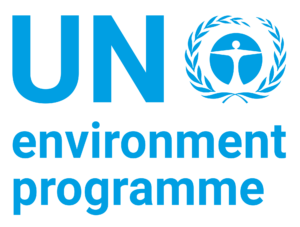
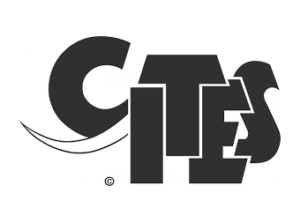


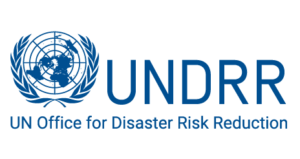

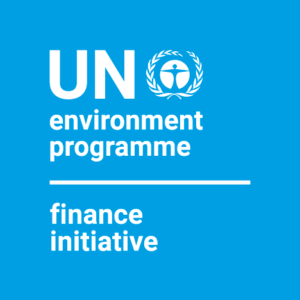
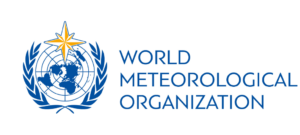



Professional
Deputy Executive Secretary | Chief of Service, Programme Management | D1
21 Aug 2023
BRS




